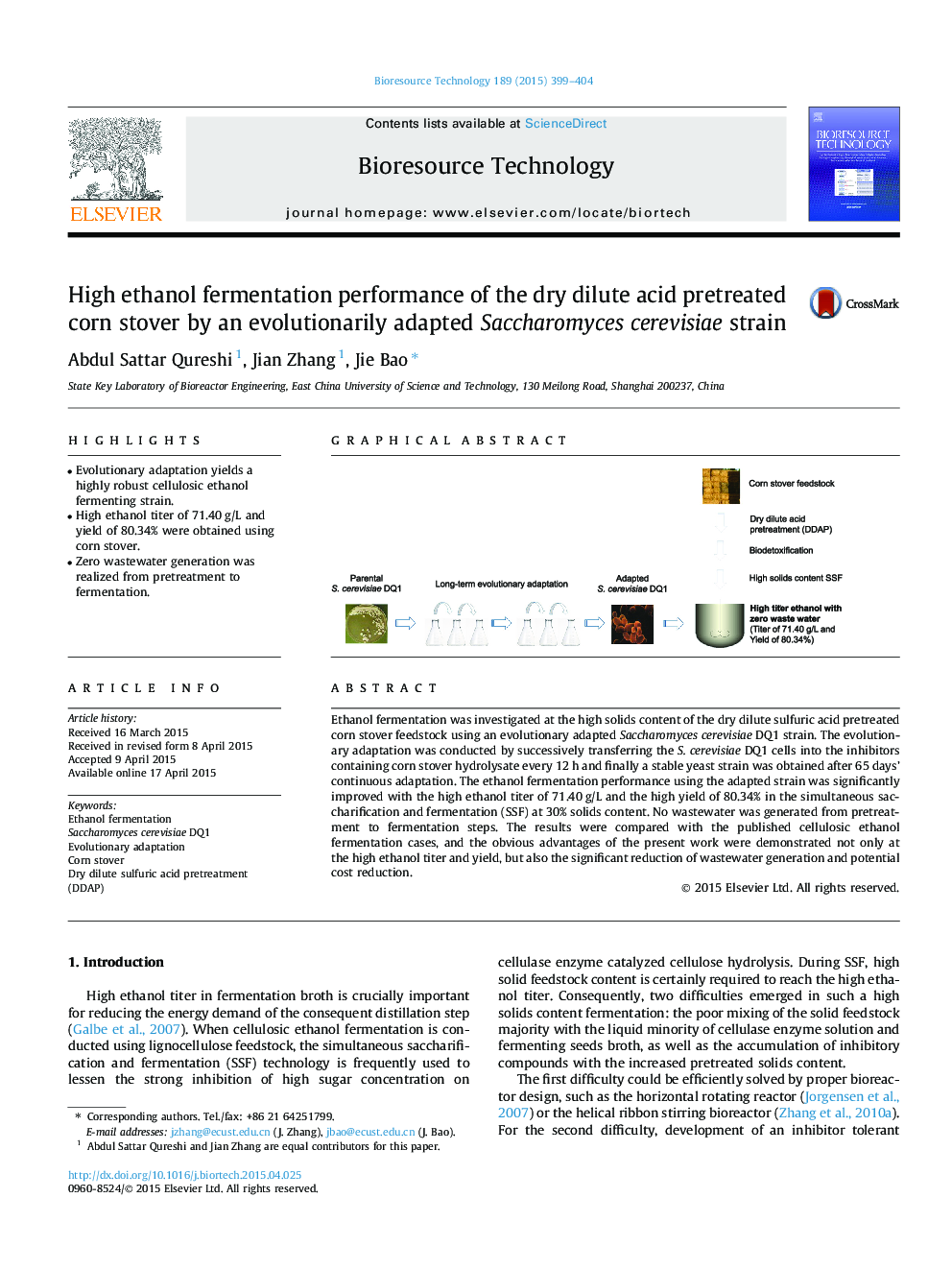| Article ID | Journal | Published Year | Pages | File Type |
|---|---|---|---|---|
| 679771 | Bioresource Technology | 2015 | 6 Pages |
•Evolutionary adaptation yields a highly robust cellulosic ethanol fermenting strain.•High ethanol titer of 71.40 g/L and yield of 80.34% were obtained using corn stover.•Zero wastewater generation was realized from pretreatment to fermentation.
Ethanol fermentation was investigated at the high solids content of the dry dilute sulfuric acid pretreated corn stover feedstock using an evolutionary adapted Saccharomyces cerevisiae DQ1 strain. The evolutionary adaptation was conducted by successively transferring the S. cerevisiae DQ1 cells into the inhibitors containing corn stover hydrolysate every 12 h and finally a stable yeast strain was obtained after 65 days’ continuous adaptation. The ethanol fermentation performance using the adapted strain was significantly improved with the high ethanol titer of 71.40 g/L and the high yield of 80.34% in the simultaneous saccharification and fermentation (SSF) at 30% solids content. No wastewater was generated from pretreatment to fermentation steps. The results were compared with the published cellulosic ethanol fermentation cases, and the obvious advantages of the present work were demonstrated not only at the high ethanol titer and yield, but also the significant reduction of wastewater generation and potential cost reduction.
Graphical abstractFigure optionsDownload full-size imageDownload as PowerPoint slide
